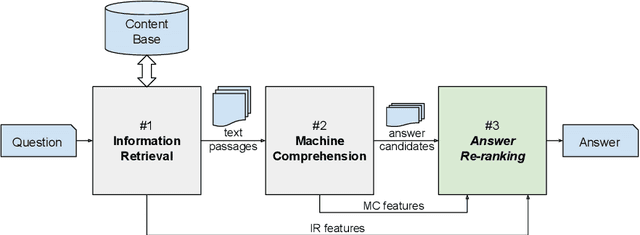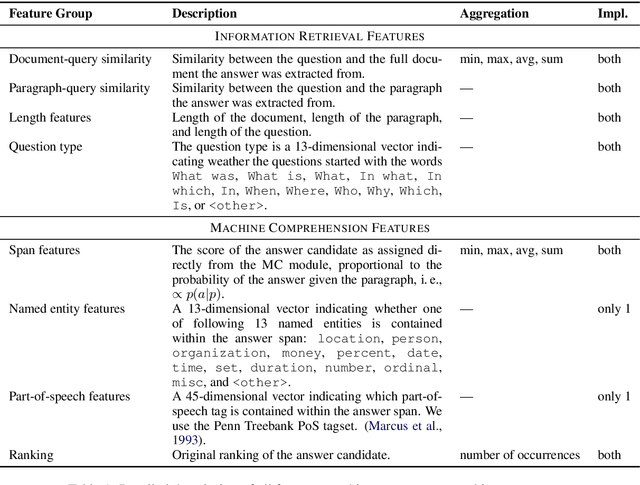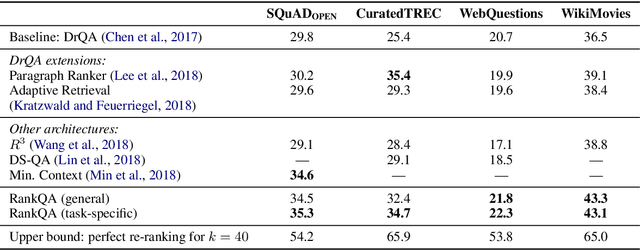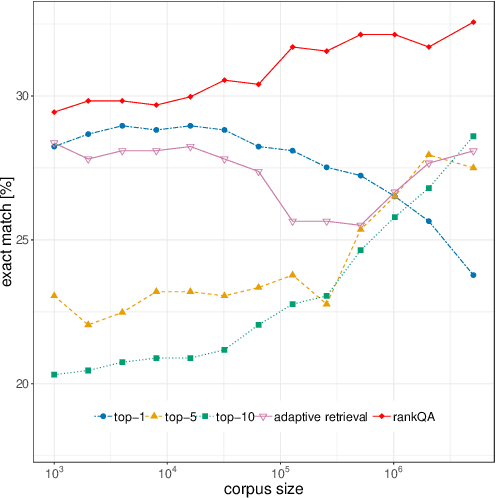Anna Eigenmann
RankQA: Neural Question Answering with Answer Re-Ranking
Jun 07, 2019



Abstract:The conventional paradigm in neural question answering (QA) for narrative content is limited to a two-stage process: first, relevant text passages are retrieved and, subsequently, a neural network for machine comprehension extracts the likeliest answer. However, both stages are largely isolated in the status quo and, hence, information from the two phases is never properly fused. In contrast, this work proposes RankQA: RankQA extends the conventional two-stage process in neural QA with a third stage that performs an additional answer re-ranking. The re-ranking leverages different features that are directly extracted from the QA pipeline, i.e., a combination of retrieval and comprehension features. While our intentionally simple design allows for an efficient, data-sparse estimation, it nevertheless outperforms more complex QA systems by a significant margin: in fact, RankQA achieves state-of-the-art performance on 3 out of 4 benchmark datasets. Furthermore, its performance is especially superior in settings where the size of the corpus is dynamic. Here the answer re-ranking provides an effective remedy against the underlying noise-information trade-off due to a variable corpus size. As a consequence, RankQA represents a novel, powerful, and thus challenging baseline for future research in content-based QA.
 Add to Chrome
Add to Chrome Add to Firefox
Add to Firefox Add to Edge
Add to Edge